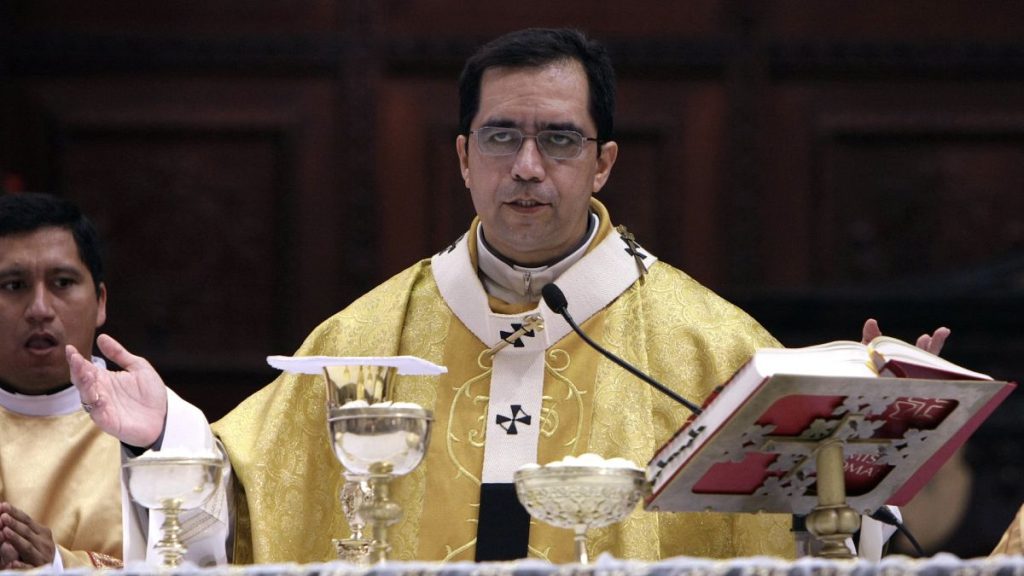In 2017, El Salvador implemented a nationwide ban on all metals mining, both above ground and below, as a protective measure for its valuable water resources, which are crucial for the sustenance of its population. This ban was the result of a national consensus among various stakeholders, including environmental, civic, and religious groups, who voiced concerns over the potential contamination of water supplies from mining activities. The country’s infrastructure and limited resources made the preservation of clean water imperative, leading to a prohibition against mining activities that could threaten the safety and health of its communities. The decision to ban mining was bolstered by the support of diverse sectors of society, highlighting the shared recognition of the environmental risks posed by resource extraction practices.
Recently, Archbishop José Luis Escobar Alas of the Roman Catholic Church has echoed sentiments from these groups, urging President Nayib Bukele to maintain the prohibition on gold mining. The archbishop warned that any reversal of the ban would cause lasting damage to the nation. This call comes in light of President Bukele’s controversial statements suggesting that the seven-year-old mining ban is “absurd” and that unmined gold represents an untapped wealth that could significantly benefit the country. His remarks indicate a shift in stance, particularly considering that Bukele, during his initial presidential campaign in 2019, was supportive of the ban, arguing for the protection of El Salvador’s natural resources and public health.
The political landscape in El Salvador plays a crucial role in the potential lifting of the mining ban. Bukele’s party has a substantial majority in Congress, meaning that any formal proposal to terminate the ban is unlikely to face significant opposition. Still, the implications of such a policy change are vast, with environmental activists and civic organizations already raising alarms about the risks that mining could pose to El Salvador’s freshwater supplies. A shift in policy could lead to the resumption of mining exploration and exploitation, even as the country continues grappling with the consequences of previous resource extraction practices.
In the past, exploration has revealed deposits of gold and silver in El Salvador, but no large-scale mining operations have yet taken place. The lack of definitive data regarding the country’s gold reserves raises additional questions about the viability and potential economic benefits of mining in El Salvador. Bukele’s recent comments advocating for a form of “modern and sustainable” mining underscore his commitment to balancing economic growth with environmental protection. However, skepticism surrounds the notion of “green mining” as environmentalists stress that mining invariably leads to negative health outcomes and ecological destruction, contradicting the premise of sustainability.
Environmental advocates have been quick to criticize the president’s enthusiasm for mining, emphasizing its detrimental effect on health and the environment. Activists like Amalia López from the Alliance Against the Privatisation of Water argue that there is no such thing as “green mining.” Instead, they cite numerous health issues linked to mining operations, including chronic kidney disease and respiratory problems, which do not manifest immediately but create substantial long-term consequences for communities. Moreover, concerns center on the extensive use of water in mining processes and the associated risk of storing contaminated water laden with heavy metals, which could seep into local water sources and exacerbate public health crises.
As the debate on the future of the mining ban unfolds, El Salvador finds itself at a crossroads between potential economic benefits and the imperative of protecting its precious water resources. The involvement of various stakeholders, including religious leaders, environmental organizations, and the government, will be critical in determining the path forward. As society weighs the risks and rewards, it remains essential for El Salvador to prioritize its environmental integrity and the well-being of its citizens, ensuring that any decisions surrounding natural resource management promote sustainable development rather than short-term profit at the expense of public health and ecological preservation.














